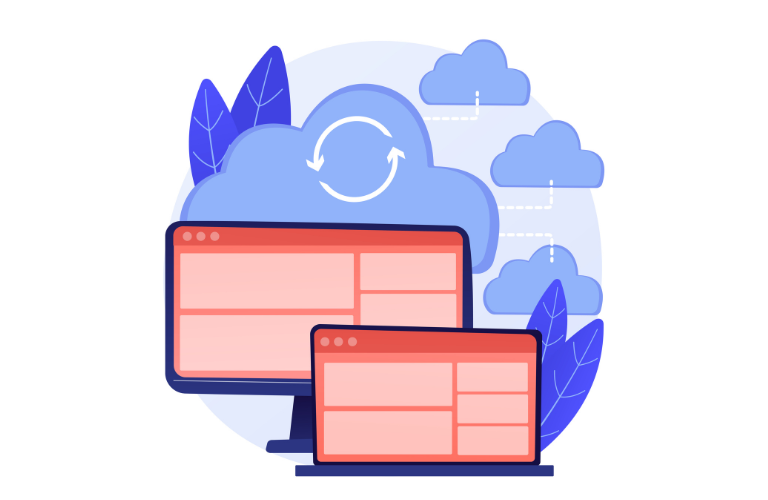Contributing to Open Source Ubuntu Projects is an exciting way to dive into a vibrant global community, sharpen your skills, and shape software used by millions. Ubuntu, maintained by Canonical since 2004, is a leading Linux distribution powering servers, desktops, and IoT devices.
Whether you’re a coder, designer, or non-technical enthusiast, this guide offers a clear pathway to get involved in 2025. From finding beginner-friendly tasks to submitting your first contribution, we’ll cover actionable steps, practical examples, and time-saving tips to make your journey rewarding.
Table of Contents
Why Contribute to Ubuntu’s Open Source Community?
Ubuntu’s open-source model thrives on collaboration, transparency, and innovation. By contributing, you help improve a platform that supports everything from personal laptops to enterprise servers. Here’s why getting involved matters:
- Skill Development: Gain hands-on experience in coding, documentation, or design while learning from seasoned developers.
- Community Impact: Your contributions enhance Ubuntu’s accessibility and functionality for users worldwide.
- Career Boost: Showcase your work on platforms like GitHub, impressing potential employers.
- Networking: Connect with developers, mentors, and enthusiasts in the Ubuntu community.
Contributing to Open Source Ubuntu Projects is not just for programmers. Non-coders can write documentation, translate interfaces, or organize events, making it inclusive for all.
Understanding Ubuntu’s Open Source Ecosystem
Ubuntu is built on a collaborative foundation, with Canonical and its community driving development. Its source code is hosted on platforms like GitHub and Launchpad, where contributors tackle bugs, add features, or improve documentation. Projects range from core Ubuntu components to tools like Snapcraft and LXD.
Key elements of Ubuntu’s open-source structure include:
- Source Code Repositories: Hosted on GitHub or Launchpad, these are where code lives.
- Issue Trackers: Tools like Launchpad’s bug tracker list tasks like bugs or feature requests.
- Contribution Guidelines: Each project has rules for submitting changes, ensuring quality.
- Code of Conduct: Ubuntu’s community emphasizes respect and inclusivity.
Familiarizing yourself with these components is the first step to Contributing to Open Source Ubuntu Projects effectively.
Getting Started: A Clear Pathway for Beginners
New to Ubuntu contributions? Start small to build confidence. Here’s a step-by-step guide to kick off your journey in 2025:
Step 1: Explore Ubuntu Projects
Browse Canonical’s GitHub repositories or Ubuntu’s community hub to find projects that align with your skills. Popular areas include:
- Development: Work on tools like doctl or Ubuntu’s desktop environment.
- Documentation: Improve guides on the Ubuntu website.
- Localization: Translate Ubuntu’s interface into your native language.
- Testing: Identify bugs in pre-release versions.
For beginners, look for issues tagged “good-first-issue” or “beginner-friendly” on GitHub.
Step 2: Set Up Your Environment
To contribute code or test changes, set up a development environment. Here’s a simple implementation using Ubuntu’s terminal:
1. Install Git:
sudo apt update
sudo apt install gitThis installs Git for version control, essential for managing code.
2. Clone a Repository:
git clone https://github.com/canonical/<project-name>.git
cd <project-name>Replace <project-name> with the repository name, like doctl.
3. Install Dependencies: Follow the project’s README to install required tools, such as Go for doctl:
sudo snap install go --classicThis setup ensures you’re ready to contribute without performance hiccups.
Step 3: Join the Community
Connect with other contributors for guidance. Key channels include:
- Ubuntu Matrix Community: Chat with developers in real-time.
- Canonical Open Documentation Academy: Attend Friday open office hours for non-coding contributions.
- Ubuntu Forums: Ask questions and share ideas.
Engaging early helps you understand project needs and avoid duplicate work.
Practical Implementation: Submitting Your First Contribution
Let’s walk through a real-world use case: fixing a typo in Ubuntu’s documentation. This is a beginner-friendly task that demonstrates the contribution process.
Use Case: Correcting a Typo in a README
Suppose you find a typo in the doctl README on GitHub. Here’s how to contribute:
1. Fork the Repository:
- Visit the doctl repository on GitHub.
- Click “Fork” to create a copy under your account.
2. Clone Your Fork:
git clone https://github.com/<your-username>/doctl.git
cd doctl3. Create a Branch:
git checkout -b fix-readme-typo4. Make Changes:
- Open the README file in a text editor.
- Correct the typo (e.g., change “instal” to “install”).
5. Commit Changes:
git add README.md
git commit -m "Fix typo in README"6. Push to GitHub:
git push origin fix-readme-typo7. Submit a Pull Request (PR):
- Go to your forked repository on GitHub.
- Click “Compare & pull request.”
- Describe your changes (e.g., “Fixed typo in README for clarity”).
- Submit the PR.
8. Respond to Feedback:
- Maintainers may request changes. Update your branch and push again:
git commit -m "Addressed feedback"
git push origin fix-readme-typoOnce approved, your changes will be merged, and you’ve successfully contributed to Ubuntu!
Time-Saving Tips and Shortcuts
Contributing to Open Source Ubuntu Projects can be streamlined with these tips:
Use Git Aliases: Set up shortcuts for common Git commands:
git config --global alias.co checkout
git config --global alias.ci commitNow, git co switches branches, and git ci commits changes.
- Bookmark Issue Trackers: Save links to Ubuntu’s Launchpad or GitHub issues for quick access to tasks.
- Automate Testing: Use scripts in the project’s repository to test changes locally, reducing errors.
- Stay Organized: Track your contributions using a spreadsheet with columns for project name, PR link, and status.
These shortcuts save time and keep your workflow efficient.
Non-Coding Contributions: Everyone Can Help
Not a coder? You can still make a big impact. Here are non-technical ways to contribute:
- Documentation: Update tutorials or fix outdated instructions. For example, improve a guide on Ubuntu’s community hub.
- Translation: Use tools like Pontoon to localize Ubuntu into languages like Spanish or Hindi.
- Support: Answer questions on Stack Overflow or Reddit.
- Evangelism: Organize meetups or speak at events like Hacktoberfest to promote Ubuntu.
These efforts are vital for Ubuntu’s global reach and user experience.
Where to Find Ubuntu Projects
Finding the right project is key to a rewarding experience. Start with these platforms:
- Canonical’s GitHub: Explore repositories like doctl or snapcraft.
- Ubuntu Community Hub: Check the “Contribute” section for opportunities.
- Launchpad: Browse bugs and tasks specific to Ubuntu.
- CodeTriage: Get Ubuntu-related issues emailed to you.
Narrow down options by checking recent activity, open issues, and maintainer responsiveness. Projects with active communities ensure your contributions are valued.
Overcoming Common Challenges
New contributors often face hurdles. Here’s how to tackle them:
- Slow Performance: If cloning repositories is slow, use a faster internet connection or clone only the latest commits:
git clone –depth 1 https://github.com/canonical/<project-name>.git - Confusion Over Guidelines: Read the project’s CONTRIBUTING.md file carefully. If unclear, ask in the community chat.
- Fear of Rejection: Start with small tasks to build confidence. Maintainers appreciate effort, even if changes need tweaking.
Persistence and communication are key to success in Contributing to Open Source Ubuntu Projects.
Why Your Contribution Matters
Every contribution, from a typo fix to a new feature, strengthens Ubuntu’s ecosystem. Your work could help a student in a classroom, a developer building an app, or a humanitarian effort relying on Ubuntu servers. Plus, you’ll gain skills, connections, and a sense of accomplishment.
FAQs
1. What is Contributing to Open Source Ubuntu Projects?
Contributing to Open Source Ubuntu Projects means helping improve Ubuntu, a popular Linux distribution, by working on its code, documentation, or community efforts. You can fix bugs, write guides, translate interfaces, or promote Ubuntu, making it better for millions of users worldwide.
2. Do I need coding skills to contribute to Ubuntu?
No, coding skills aren’t required! While developers can work on code, non-coders can contribute by:
- Writing or updating documentation.
- Translating Ubuntu into other languages.
- Testing for bugs.
- Answering questions on forums like Stack Overflow. Contributing to Open Source Ubuntu Projects is open to everyone.
3. How do I find beginner-friendly Ubuntu projects?
Start by exploring:
- Canonical’s GitHub: Look for repositories like doctl with issues tagged “good-first-issue.”
- Ubuntu Community Hub: Check the “Contribute” section for tasks.
- Launchpad: Browse beginner-friendly bugs. These platforms make Contributing to Open Source Ubuntu Projects easy for newcomers.
4. What tools do I need to start contributing to Ubuntu?
You’ll need a few basic tools:
- Git: For version control (sudo apt install git).
- A GitHub account: To fork and submit changes.
- Text editor: Like VS Code or Nano for editing files.
- Project-specific tools: Check the README for requirements, like Go for doctl. Setting these up is the first step in Contributing to Open Source Ubuntu Projects.
5. How do I submit my first contribution to Ubuntu?
Follow these steps:
- Fork the project’s repository on GitHub.
- Clone it: git clone https://github.com/<your-username>/<project>.git.
- Create a branch: git checkout -b my-fix.
- Make changes and commit: git commit -m “Fixed typo”.
- Push to GitHub: git push origin my-fix.
- Submit a pull request on GitHub. This process is key to Contributing to Open Source Ubuntu Projects.
6. Where can I get help if I’m stuck contributing to Ubuntu?
Join Ubuntu’s community for support:
- Ubuntu Matrix Community: Chat with developers.
- Ubuntu Forums: Ask questions and share ideas.
- Canonical Open Documentation Academy: Attend Friday open office hours. These resources make Contributing to Open Source Ubuntu Projects smoother and more collaborative.




